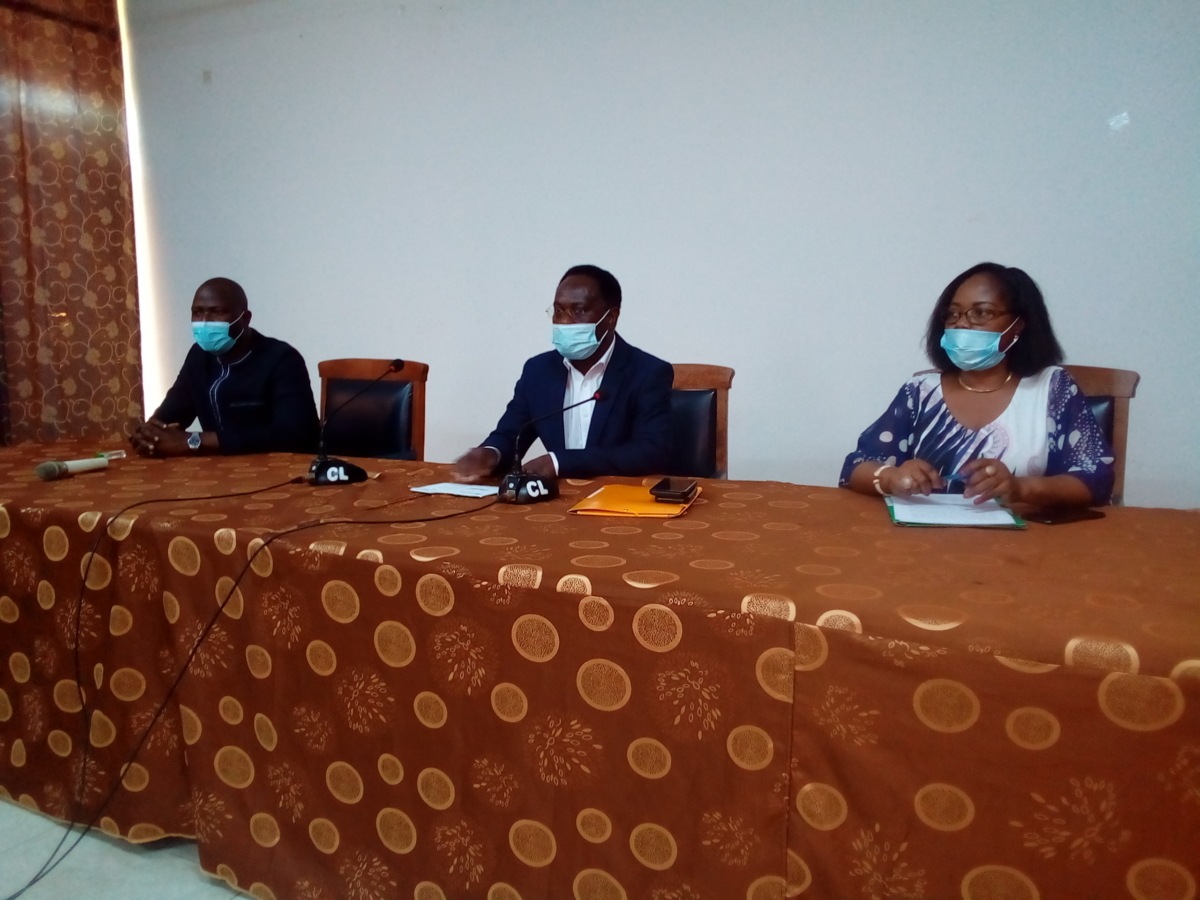
UNDP brings together experts to review Law 2005-31 of 10 April 2006 on HIV/AIDS
The United Nations Development Programme (UNDP) organized, this Tuesday, November 10, 2020 at L’Infosec in Cotonou, a workshop to exchange and share information on scientific data on HIV in the context of criminal law.
This meeting which brought together several experts, has the main objective of exchanging and sharing information on issues and reforms inherent to the criminalization of HIV in the world in general and Benin in particular with regard to the consensus statement of experts.
Specifically, the aim was to make the participants familiar with and take ownership of the experts’ consensus statement, understand the issues of HIV criminalization, and analyze the impact of this statement on HIV laws around the world, in particular in francophone Africa and Benin.
On the agenda of the meeting was the law N° 2005- 31 of April 10, 2006 on the prevention, care and control of HIV and AIDS in the Republic of Benin.
On this occasion, the Deputy Coordinator of the Health Program for the Fight against AIDS, Dr. Bachabi Moussa was delighted to start the process of revising the law on HIV prevention and care in Benin.
For him, this law deserves to be updated in view of the evolution of HIV/AIDS.
For her part, Joséphine Kanakin, UNDP Gender, Human Rights and HIV/AIDS Program Officer, said that the law needs to be reviewed through exchanges and sharing of important and scientific information in order to adapt it to reality.
Opening the workshop, the Executive Secretary of the National Council for the Fight against AIDS (CNLS), Tuberculosis and Hepatitis, Melchior Aïssi insisted on the fruitful exchanges between the experts.
He specified that the consensus of the experts in the context of positive criminal law is calmed down to the Beninese positive law. “Our wish and the wish of the government is to humanize HIV/AIDS because in the existing laws are the crucibles of stigmatization and discrimination.
“AIDS should be considered like any other disease that can be treated anywhere and anytime, it would be much more humanized. Let the health facilities be able to welcome them everywhere and in all services. Giving a specific place for their treatment is already a stigma,” he suggested.
UNDP Deputy Resident Representative José Herman Wabo expressed his organization’s expectations.
“We want to fill a gap in the existing legal framework to provide a comprehensive legal framework to support people affected by HIV/AIDS. Beyond a simple workshop, these are exchanges that will affect the lives of some people by providing solutions.
Gatien ELEGBEDE
Le PNUD réunit des experts pour la révision de la Loi 2005-31 du 10 avril 2006 sur le VIH/Sida
Le Programme des Nations Unies pour le Développement (PNUD) a organisé, ce mardi 10 novembre 2020 à L’Infosec de Cotonou un atelier d’échanges et de partage d’informations sur les données scientifiques relatives au VIH dans le contexte du droit pénal.
Cette rencontre qui a réuni plusieurs experts, a pour objectif principal de d’échanger et de partager les informations relatives aux enjeux et réformes inhérents à la pénalisation du VIH dans le monde en général et au Bénin en particulier au regard de la déclaration de consensus des experts.
De façon spécifique, il s’est agi d’amener les participants à prendre connaissance et s’approprier la Déclaration de consensus des experts, comprendre les enjeux de la pénalisation du VIH, analyser l’impact de cette déclaration sur les lois sur le VIH dans le monde en l’occurrence en Afrique francophone et au Bénin en particulier.
Au menu des échanges de la rencontre, la loi N° 2005- 31 du 10 Avril 2006 portant prévention, prise en charge et contrôle du VIH Sida en République du Bénin.
À l’occasion, le Coordonnateur adjoint du Programme Santé de Lutte contre le Sida, Docteur Bachabi Moussa se réjouit de démarrage du processus de révision de la loi portant prévention et prise en charge du VIH au Bénin.
Pour lui, cette loi mérite d’être actualisée au vue de l’évolution du VIH/Sida.
Pour sa part, la chargée de programme Genre, Droits humains et VIH/Sida du PNUD, Joséphine Kanakin précise qu’il s’agit d’examiner la loi par des échanges et le partage des informations importantes et scientifiques pour l’adapter à la réalité.
Procédant à l’ouverture de l’atelier, le Secrétaire Exécutif du Conseil National de Lutte contre le SIDA (CNLS), la tuberculose, les hépatites, Melchior Aïssi a insisté sur les échanges fructueux entre les experts.
Il précise que le consensus des experts dans le contexte du droit pénal positif soit calmé au droit positif béninois. » Notre souhait et le souhait du gouvernement est d’humaniser le VIH/Sida parce que dans les lois existantes se trouvent les creusets de la stigmatisation et des discriminations.
« Il faut considérer le SIDA comme toute autre maladie qui peut être traitée partout et à tout moment, ce serait beaucoup plus humanisé. Que les formations sanitaires soient capables de les accueillir partout et dans tous les services. Le fait de donner un endroit spécifique pour leur traitement est déjà une stigmatisation » a t-il laissé entendre.
Le représentant résident adjoint du PNUD, José Herman Wabo, a fait part des attentes de son organisation.
« Nous souhaitons combler un vide noté dans le cadre légal existant afin d’en offrir un cadre légal complet afin d’apporter un appui à ces personnes affectées par le VIH /Sida. Au delà d’un simple atelier, ce sont des échanges qui vont affecter la vie de certaines personnes en leur apportant des solutions ».
Gatien ELEGBEDE







